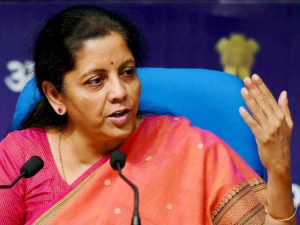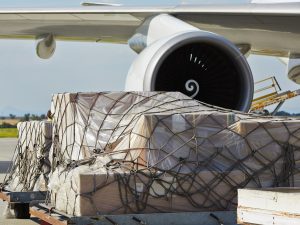Vipin Vohra, Chairman, Continental Carriers said, “Finance Minister, Nirmala Sitharaman has announced that the government has implemented various measures to streamline international trade processes. Consequently, the time required for the release of import cargo has witnessed significant reductions. Specifically, there has been a 47% decrease to 71 hours at Inland Container Depots (ICDs), a 28% reduction to 44 hours at Air Cargo Terminals, and a 27% decline to 85 hours at seaports over the past four years, starting from 2019 when the National Time Release Studies were initially conducted. In light of these achievements, the Continental Carriers Pvt Ltd (CCPL) expresses the view that further improvements can be made in reducing release times. CCPL suggests that encouraging the establishment and utilization of off-airport bonded warehouses, particularly in the form of Air Freight Stations, would alleviate congestion at Air Cargo Terminals. Furthermore, CCPL emphasizes the potential benefits of rationalizing Cargo Handling tariffs by Cargo Terminal Operators. This, in turn, is expected to contribute to an overall reduction in logistics costs. Additionally, CCPL recommends the simplification of regulatory norms and the adoption of a ‘single window’ procedure for obtaining approvals. These measures are believed to enhance the development of world-class infrastructure for handling international cargo at Inland Container Depots, Air Cargo Terminals, and other relevant facilities.”
Read More »‘Development of three economic railway corridors is a transformative move’
Amit Maheshwari, CEO, Softlink Global shares his views on the interim budget 2024-2025, “The focus on enhancing logistics and intermodal transportation through the PM Gati Shakti plan, particularly the development of three major economic railway corridors, is a transformative move. This will significantly boost logistics efficiency and reduce operational costs, aligning perfectly with Softlink Global’s commitment to innovative and efficient logistics solutions. Additionally, the establishment of a one lakh crore rupee corpus for interest-free loans to support innovation is a commendable step. It will empower the private sector in advancing research and development, particularly in emerging technologies and defense sectors, resonating with our focus on integrating cutting-edge technology in logistics. Furthermore, the government’s initiative for green growth through bio-manufacturing and bio-foundry is another area we welcome. This move towards sustainable and eco-friendly manufacturing practices reflects a global shift towards environmental responsibility, an aspect critically important in the logistics and supply chain sector. These initiatives collectively represent a significant advancement in technology, logistics, and sustainable practices, and offer immense potential for companies like Softlink Global to innovate and contribute towards a more efficient and sustainable future in India’s logistics landscape.”
Read More »‘More airports in tier 2 & 3 cities, rise in exports, infra, multimodal connectivity’
With the focus on making India ‘Viksit Bharat’ by 2047, Finance Minister Nirmala Sitharaman presented the interim budget and said the government’s focus is now on Sabka Sath, Sabka Vikas.” She said, “Tier 2 and Tier 3 cities will have more modern airports, in the coming years, there will be 11% increase in overall infrastructure expenditure. Exports will be doubled to ₹1-lakh crore rupees,” said FM. Touching upon measures that will be taken to expand India’s railway infrastructure, Sitharaman announced, three major railway economic corridors including energy, mineral and cement corridor, a port connectivity corridor and a high traffic density corridor. “Railway projects have been identified under the PM Gati Shakti Yojana for enabling multi-modal connectivity. These will improve logistics efficiency and reduce costs. Decongestion of high traffic corridors will result in improving operations, which in turn would result in safety and higher travel speeds for passengers. These corridors, along with dedicated freight corridors, will accelerate our GDP and reduce logistic costs. Finance Minister also said that the government is focused on more comprehensive ‘governance, development, performance’ – termed as ‘GDP’.
Read More »Etihad Cargo achieves IATA CEIV Li-batt certification
Etihad Cargo has achieved the International Air Transport Association’s (IATA) Centre of Excellence for Independent Validators Lithium Batteries (CEIV Li-batt) certification. The carrier is the third Middle Eastern airline to attain this certification and has become only the fifth airline globally to achieve CEIV Pharma, Fresh, Live Animals and Li-batt certifications. CEIV Li-batt certification represents an airline’s capability to handle and transport lithium batteries in accordance with the highest safety and efficiency standards. Certification involves assessing an airline’s operational processes, staff training programmes, and compliance with global safety regulations, including an extensive audit by independent validators. Thomas Schürmann, head of cargo operations & delivery at Etihad Cargo, said: “According to IATA, lithium batteries represent one-third of the dangerous goods transported by air and have become the preferred energy source for a wide variety of consumer goods, including mobile phones, cars, e-bikes and children’s toys. “Achieving CEIV Li-batt certification highlights Etihad Cargo’s dedication to maintaining the highest safety and operational excellence standards. This achievement positions the carrier among an elite group of global airlines that are committed to meeting the safety obligations of the lithium battery supply chain through the competent handling and transport of these products. “Rounding out the carrier’s suite of CEIV certifications, CEIV Li-batt underscores Etihad Cargo’s commitment to specialised and quality-driven cargo services.”
Read More »Airfreight rates on the rise as January draws to a close
Airfreight rates in January climbed as the month progressed due to the approaching Lunar New Year holiday and anecdotal reports of a move from sea to air due to the Red Sea crisis. The latest figures from the Baltic Exchange Airfreight Index (BAI) show that in the last full week of January rates from Hong Kong to North America climbed 8.4% on a week earlier to $5.15 per kg. From Hong Kong to Europe prices last week were up 4.5% week on week to $4.16 per kg. Airfreight rate data provider TAC Index said the increase was expected. “The increase is in line with expectations that rates may spike following disruption to ocean shipping in the Red Sea, though sources also point out that rates often rise in the runup to Chinese New Year,” TAC said in a weekly market round-up. This year the Lunar New Year holiday falls on February 10 compared with January 22 last year. Forwarders have been reporting increased interest in sea-air services and airfreight as a result of the Red Sea disruption. While rates increased this week, for the month overall prices were down on a year ago. BAI figures show that January rates from Hong Kong to North America decreased 15% year on year to $5.22 per kg, while rates from Hong Kong to Europe were down 16.9% to $4.12 per kg. Rates on the routes have been trending downwards since the third quarter of 2022 as the aviation market began its slow recovery from the Covid pandemic.
Read More »Turkish Cargo launches three new pharma products for global customers
Turkish Cargo has launched three new pharma products to cater to global market needs. Its products namely, TK Pharma Standard, TK Pharma Extra and TK Pharma Advanced, will meet the expectations of the customers at the highest level by developing flexible solutions for the pharmaceutical and medical consignments in various categories. Ali Türk, Chief Cargo Officer of Turkish Airlines, said; “We are proud to be a trusted solution partner, which has helped us achieve a market share of 7 percent in the global air transportation of pharmaceuticals and medical products. We, as Turkish Cargo, are making innovative investments for the purpose of not only solidifying such trust but also adapting to the dynamics of the ever-growing healthcare industry. With the new offers, Turkish Cargo is committed to providing its business partners with more assurance, transparency, and better visibility for an enhanced quality and widened range of services.” 1. Industry standard temperature-controlled solutions TK Pharma Standard enables temperature-sensitive cargo to be shipped in compliance with the industry requirements. Thanks to TK Pharma Standard, shipments are being carried by benefiting from expert handling, high priority for loading, dedicated temperature-controlled storage, trained dedicated operations team and 24/7 customer services, available throughout the entire TK Pharma Network under the assurance of Turkish Cargo. 2. Enhanced temperature-controlled solutions For pharmaceuticals and medical products with a higher sensitivity to temperature and time, which are shipped by making use of passive packaging methods and require extra protection during apron transportation, are carried above and beyond the expectations of the industry thanks to TK Pharma Extra. While they are on the apron, the consignments, covered by such product, are carried by *temperature-controlled dollies and monitored from the point …
Read More »‘PLI schemes, investments in infra tech will help cut costs’
JB Singh, Director, MOVIN Express shares his expectations from the upcoming budget, “It is imperative for the industry to adopt changes backed by robust technology to thrive in the fast-paced environment. Looking ahead, effective budgetary strategies, coupled with financial and regulatory incentives like Production-Linked Incentive (PLI) schemes, and strategic investments in infrastructure, will be instrumental in reducing domestic logistics costs. The logistics industry stands at the forefront of transformative change, and the government has undertaken various initiatives to implement forward-looking measures in advancing multimodal projects and fortifying infrastructure. The future relies on the efficiency, resilience, and resource optimization of supply chains. The government’s commitment to substantial infrastructure projects, such as PM Gati Shakti and the National Logistics Policy, positions India as a pivotal hub for manufacturing. The budget should emphasize connectivity projects in various economic zones, thereby helping to reduce logistics costs and time, improving productivity and the economy.”
Read More »Global air cargo demand in January up as compared to 2023: WorldACD
Worldwide air cargo demand in January so far remains significantly up compared with this time last year, according to the latest figures from WorldACD Market Data, with tonnages from all the main global regions ahead of last year’s figures with the exception of ex-North America traffic. Freight forwarders continue to report anecdotally that certain cargo owners are switching some Asia-Europe cargo from sea to air or to sea-air because of longer ocean voyages caused by the disruptions in the Red Sea, although from a data perspective it is difficult to separate this traffic from the normal seasonal mid-January uplift following the New Year slowdown, and from the effects of Lunar New Year (LNY), with LNY in 2024 coming later (10 February) than last year (22 January). Reflecting the serious disruptions to international container shipping, ocean freight spot rates from Asia to Europe are now around three times their level prior to the Red Sea disruptions, although air cargo rates remain relatively stable globally, and ex-Asia Pacific, compared with before the Red Sea crisis – although ex-Asia Pacific air cargo rates had already risen in the final quarter of last year due to seasonal and product-related demand factors. Some forwarders say that in anticipation of ocean to air conversions, they are blocking additional air capacity on core trade lanes to help customers keep their freight moving. Others note that the window for booking air freight ahead of Lunar New Year (10 February) is closing and the next two to three weeks could be challenging, with the expectation of “bunched” container ships arriving en masse at the main European ports, potentially triggering port delays, driver shortages and cargo build-ups at warehouses, driving …
Read More »CONCOR signs MoU to meet container logistics requirements
A non-binding MoU was signed between Container Corporation of India (CONCOR) and Indian Oil Corporation (IOCL) at to facilitate discussions and cooperation between Indian Oil and CONCOR in various areas such as for using LNG as a fuel and addressing petrochemical and other container logistics requirements. Additionally, the agreement aims to establish competitive and stable pricing for contracts at existing and upcoming LNG Auto stations across India. Furthermore, the MOU entails potential collaborations such as creating virtual storage units in CONCOR’s warehouses to store Indian Oil’s petrochemical products at different CONCOR terminals. Indian Oil and CONCOR will also explore new business prospects like supplying LNG through ISO containers via Railways and Multi-Modal Logistics. Moreover, the agreement includes utilizing CONCOR’s Multi-Modal Logistics Park (MMLP) at Paradip for Indian Oil’s Pet-chem rail dispatches and potential logistics handling by CONCOR for a centralized Pet-Chem warehouse of Indian Oil, expected to be established in the near future.
Read More »CSafe expands further into India with Bengaluru station
CSafe has partnered with WFS in Bengaluru to provide active temperature-controlled containers locally for pharmaceutical shipments at the WFS Coolport. CSafe, the largest active and passive temperature-controlled shipping solutions provider for the biopharmaceutical industry, has opened a new station in Bangaluru to provide active temperature-controlled containers locally. This latest CSafe station in India follows the opening the company’s Hyderabad location in late 2022. With a second CSafe station operational in India, customers have more options for shipping temperature-controlled pharmaceuticals into and out of the country. CSafe partnered with WFS in Bangaluru to make active air cargo units available at their Kempegowda International Airport facility. WFS, a member of the SATS Group, operates two cargo terminals at Bengaluru including the WFS Coolport which is the exclusive gateway for all temperature-controlled cargo moving via Bengaluru Airport. The CSafe station at Bengaluru Airport is located inside the WFS Coolport premises, allowing containers to move in and out of the country much faster. CSafe RKN and RAP containers will be available for pick-up and return through the new facility.
Read More » Cargo Breaking News
Cargo Breaking News









